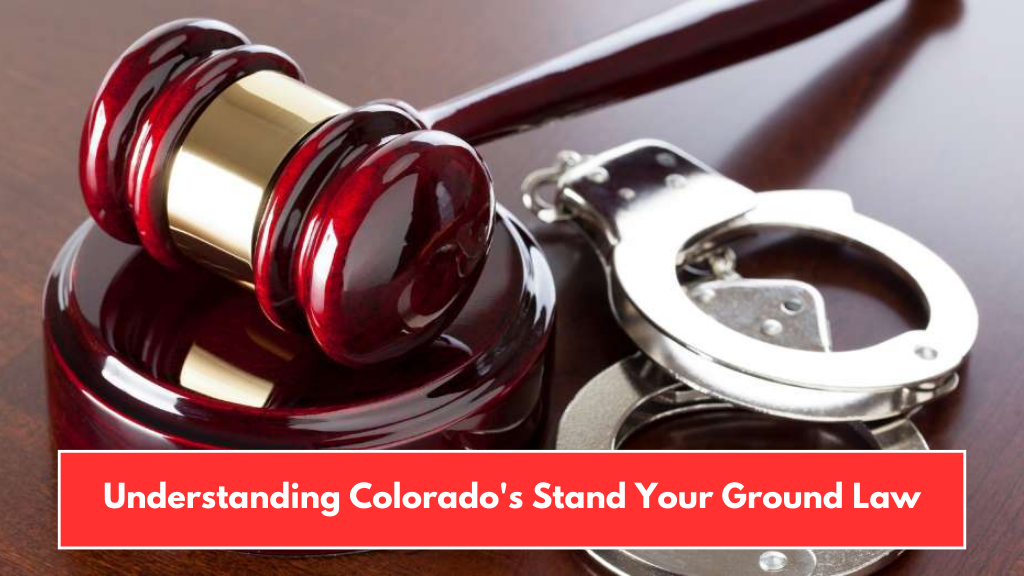In Colorado, the law allows you to defend yourself with reasonable physical force if you believe you’re in immediate danger. This is known as the Stand Your Ground law, and while it sounds straightforward, how it works in real-life situations—and in court—can be complicated.
This guide will help you understand when self-defense is allowed, how much force is legal, and how Colorado’s Stand Your Ground and Make My Day laws work.
When Is Self-Defense Legal in Colorado?
You are legally allowed to defend yourself—or someone else—if you reasonably believe you’re facing a threat of physical harm. This includes the use of deadly force, but only if the situation calls for it.
Most importantly, you are not required to retreat before defending yourself. You can stand your ground, even if there’s a way to escape.
However:
You cannot be the person who started the fight and still claim self-defense (unless you clearly try to leave and are still attacked).
How Does Self-Defense Work in Court?
If you’re charged with a crime but claim you were only defending yourself, it means you admit to the act (such as hurting or killing someone) but say it was necessary to protect yourself or others.
To win a self-defense case, you must show:
- You reasonably believed you or someone else was in immediate danger.
- The force you used was proportionate to the threat.
Why Does Colorado Allow Deadly Force in Some Cases?
The law gives people the right to defend themselves—even with deadly force—because safety is a basic right. Colorado’s Make My Day law gives even more protection if someone breaks into your home.
What Is the Make My Day Law?
Make My Day is Colorado’s version of the Castle Doctrine. It lets you use deadly force inside your home if you reasonably believe:
- You could be seriously hurt or killed.
- The intruder is committing robbery, assault, kidnapping, or sexual assault.
You do not have to wait or try to escape. You can take action immediately if the threat is real.
Note: The law applies only inside your home, not at your front door, in your yard, or in shared areas like apartment hallways.
Can Trespassers Use Self-Defense Too?
Yes, in rare cases. If a property owner uses extreme force without warning and the trespasser reacts in fear, self-defense might still apply. But this depends heavily on the situation and will usually require a skilled criminal defense lawyer to argue the case.
Can You Use Deadly Force to Defend Property?
No, not unless it’s to stop a violent crime, like arson. You can use reasonable force to protect your belongings but not deadly force just to stop theft.
How Much Force Is Too Much?
You should only use as much force as needed to stop the threat. If someone shoves you, it’s not okay to respond with a gun unless the situation clearly puts your life at risk.
Example:
- Not justified: Killing someone who pushes you during an argument.
- Justified: Using deadly force if someone is trying to push you off a 15-story building.
Difference Between Stand Your Ground & Make My Day
- Stand Your Ground: Applies anywhere, not just at home.
- Make My Day: Applies only at home, but gives stronger legal protection.
What Does “Reasonable Belief” Mean?
It means your reaction must make sense to a reasonable person.
Example:
If someone threatens to shoot you and reaches into their pocket, it’s reasonable to assume they’re pulling a gun, even if they were actually reaching for their wallet.
But if a car backfires and you start shooting people thinking it’s a gunshot, that is not reasonable.
Can You Start a Fight and Still Claim Self-Defense?
Usually, no. But if you clearly try to back away and the other person keeps attacking, you may still be protected under self-defense laws.
Can You Use Force to Protect Someone Else?
Yes. You can defend another person if you believe they’re in danger, just like you would defend yourself.
But this can be tricky—if the situation turns out to be a prank or misunderstanding, your actions will still be judged based on what was reasonable at the time.
How Self-Defense Applies to Specific Crimes
Second-Degree Murder
If you kill someone during a self-defense situation, you could be charged with murder. But if you prove it was necessary, the charge can be dismissed completely.
Assault
If your actions caused serious injury but were done in self-defense, you won’t be guilty of assault.
Domestic Violence
Self-defense can be used here too, but it’s harder to prove. You must show:
- You didn’t start the fight.
- You tried to get away.
- Your response was reasonable.
Resisting Arrest
You usually can’t claim self-defense here, unless the officer is clearly abusing their power (like assaulting you unlawfully). This doesn’t apply to just being wrongly arrested.
Who Counts as a Lawful Authority
- On-duty police: You must follow lawful orders.
- Off-duty officers or private security: May not have the same legal protections. If they act aggressively without authority, you may claim self-defense.
When to Call a Criminal Defense Lawyer
If you’re involved in a situation involving self-defense, Stand Your Ground, or Make My Day, you should speak to a criminal defense attorney in Colorado. They can:
- Help you understand your rights.
- Build your legal case.
- Represent you in court and protect you from unfair penalties.
Colorado’s Stand Your Ground and Make My Day laws give residents the right to protect themselves—but only when the threat is real, immediate, and serious.
Understanding when and how to use force can keep you safe and out of jail. If you’re ever unsure, it’s best to speak with a legal expert before making assumptions about your rights.














